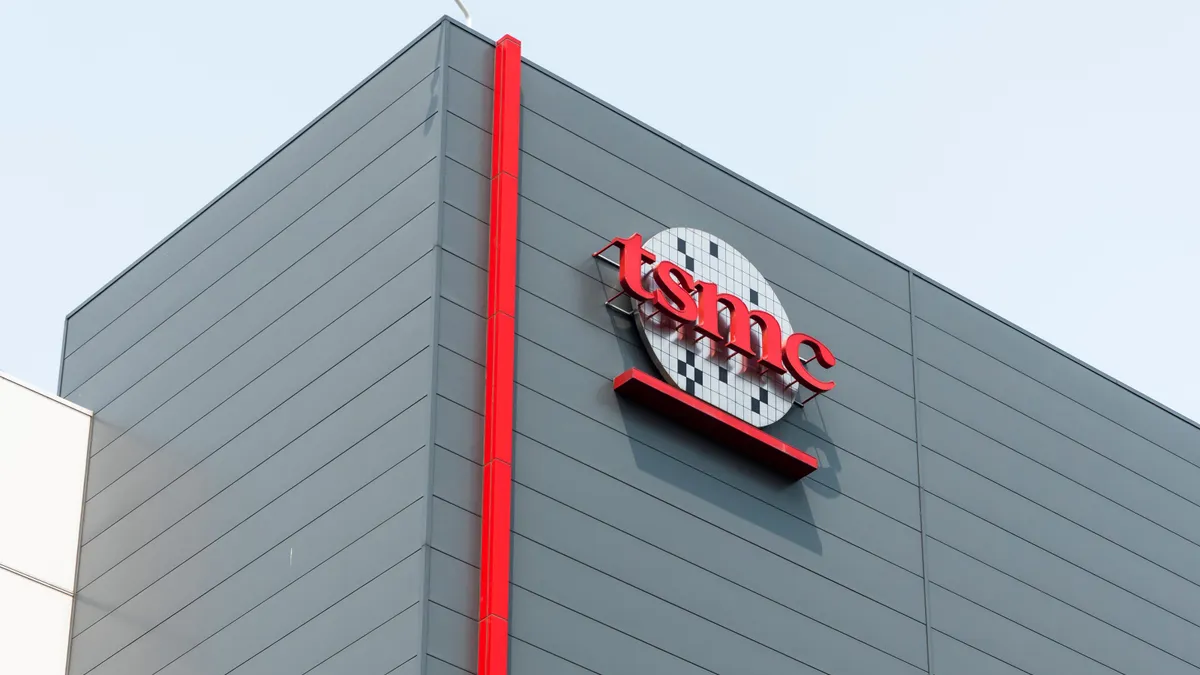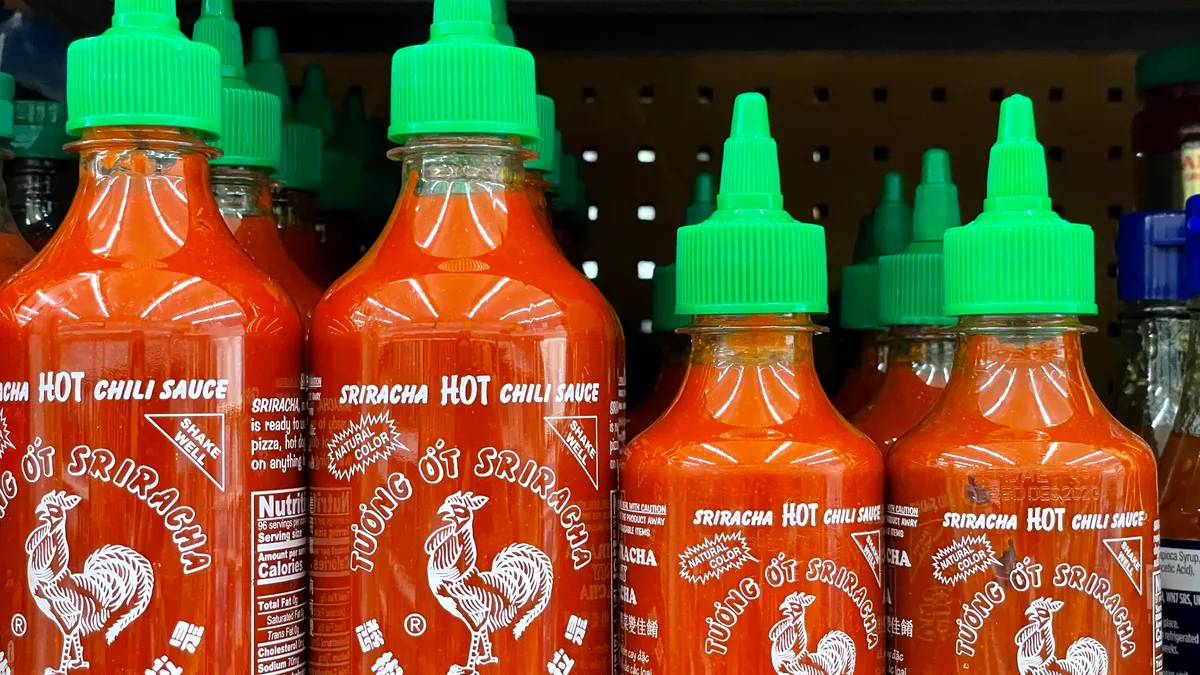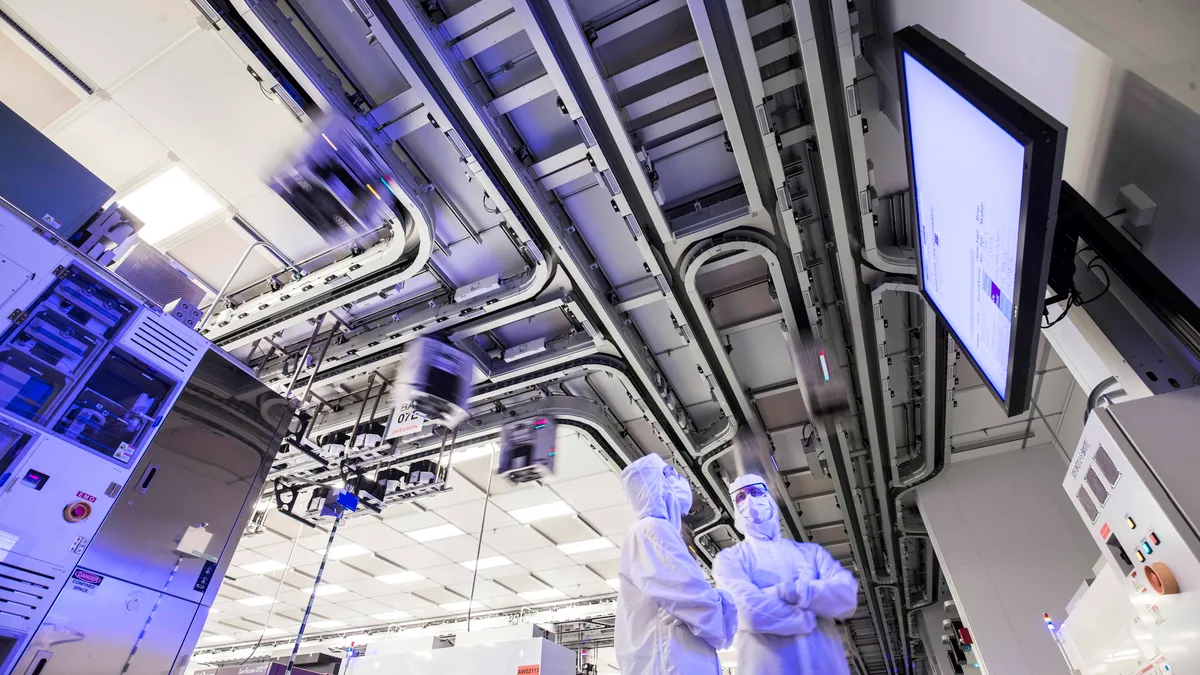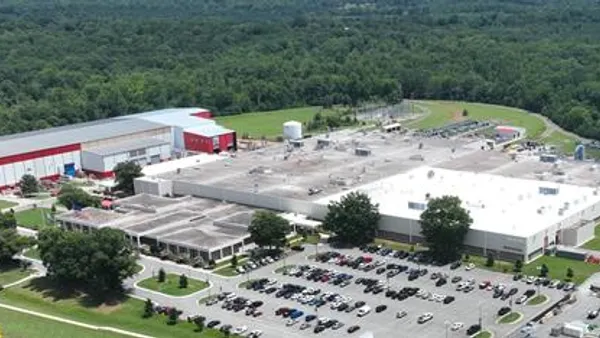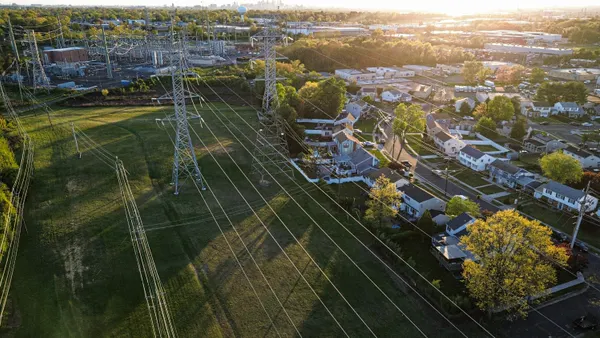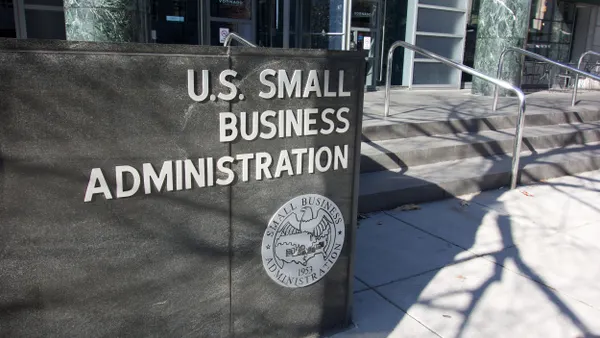Dive Brief:
- Taiwan Semiconductor Manufacturing Co. posted solid earnings in the first quarter, with revenue up 35.3% year over year to $25.5 billion.
- CEO C.C. Wei told investors on Thursday that TSMC has yet to see any change in customer behavior as a result of tariffs, allowing the company to maintain its current full-year guidance, expecting 2025 revenue to increase by "close to mid-20s percent."
- The chipmaker expects to earn between $28.4 billion and $29.2 billion in revenue for Q2.
Dive Insight:
TSMC's confidence comes amid growing uncertainty about how tariff hikes will impact U.S. chip manufacturers. Last week, the Trump administration ordered a Section 232 investigation of semiconductor imports ahead of anticipated tariffs on the industry.
Despite the looming possibility of tariffs, Wei said the company is sticking to its financial guidance.
"We might get a better picture in the next few months, and we will continue to closely monitor the potential impact to the end-market demand and manage our business prudently," the CEO said.
The chipmaker also continues to expand its U.S.-based production capacity to meet growing AI demand. The company is now planning to produce 30% of its two-nanometer chip capacity in Arizona, Wei said.
"Geographic manufacturing flexibility is an important part of our value proposition to the customers," CFO Wendell Huang added on the earnings call.
The company is also pushing to expedite the start of production at its second semiconductor fab and construction of its third to meet that demand. Wei noted some difficulties, however, in pulling forward construction due to "the labor shortage of Arizona."
TSMC has faced similar problems with its previous projects, delaying the timeline for its second factory from 2026 to either 2027 or 2028 due to a lack of qualified workers.
Last month, the company announced plans to invest $100 billion in U.S. manufacturing capacity, an example, according to President Donald Trump of the power of tariffs to incentivize foreign companies to invest in the U.S.
The Trump administration is also enacting more export controls on certain semiconductors to China. On April 15, TSMC customer Nvidia disclosed in a securities filing that its H20 integrated circuits were now subject to export licensing requirements for shipment to China. The company expects to take a quarterly charge of $5.5 billion as a result.
Despite the impact this regulation could have on TSMC, Wei said the chipmaker still expects to double its AI revenue this year, with demand still "very strong" outside of China.



